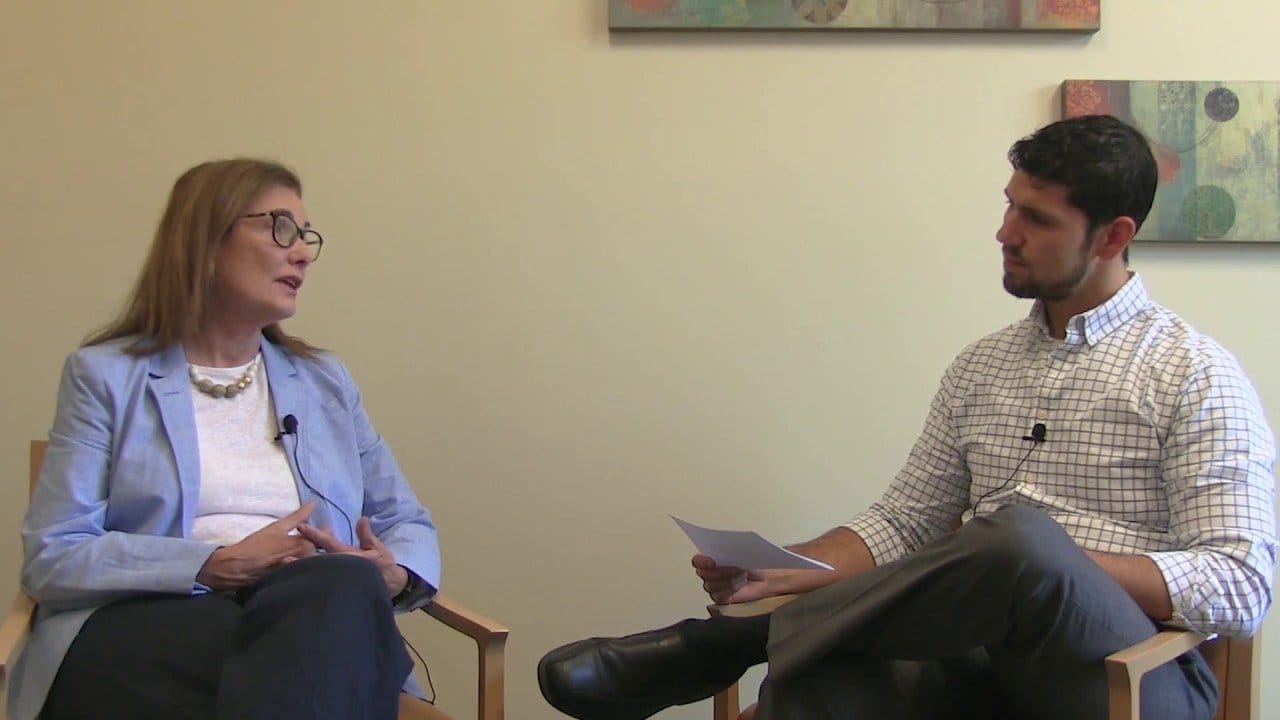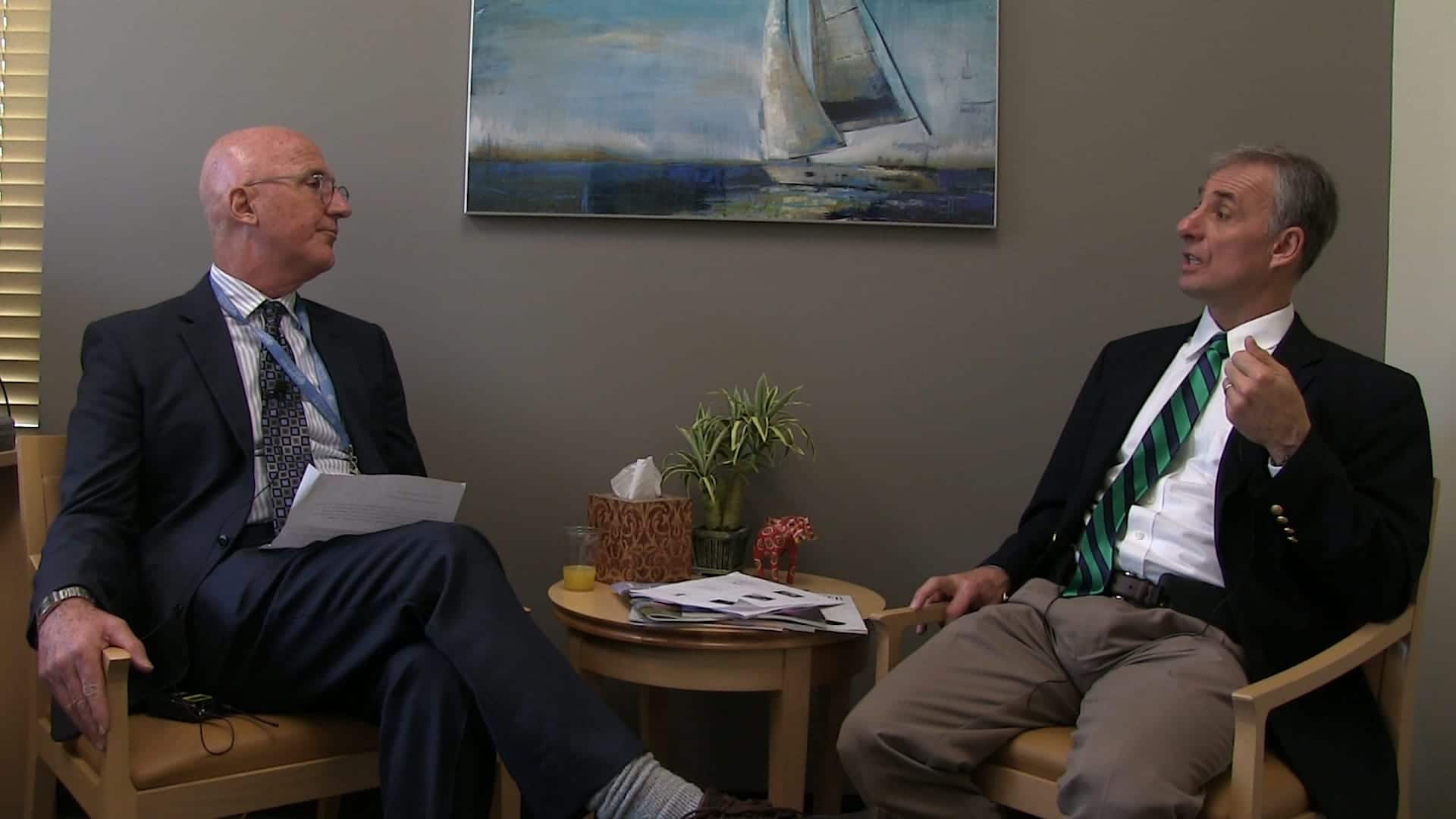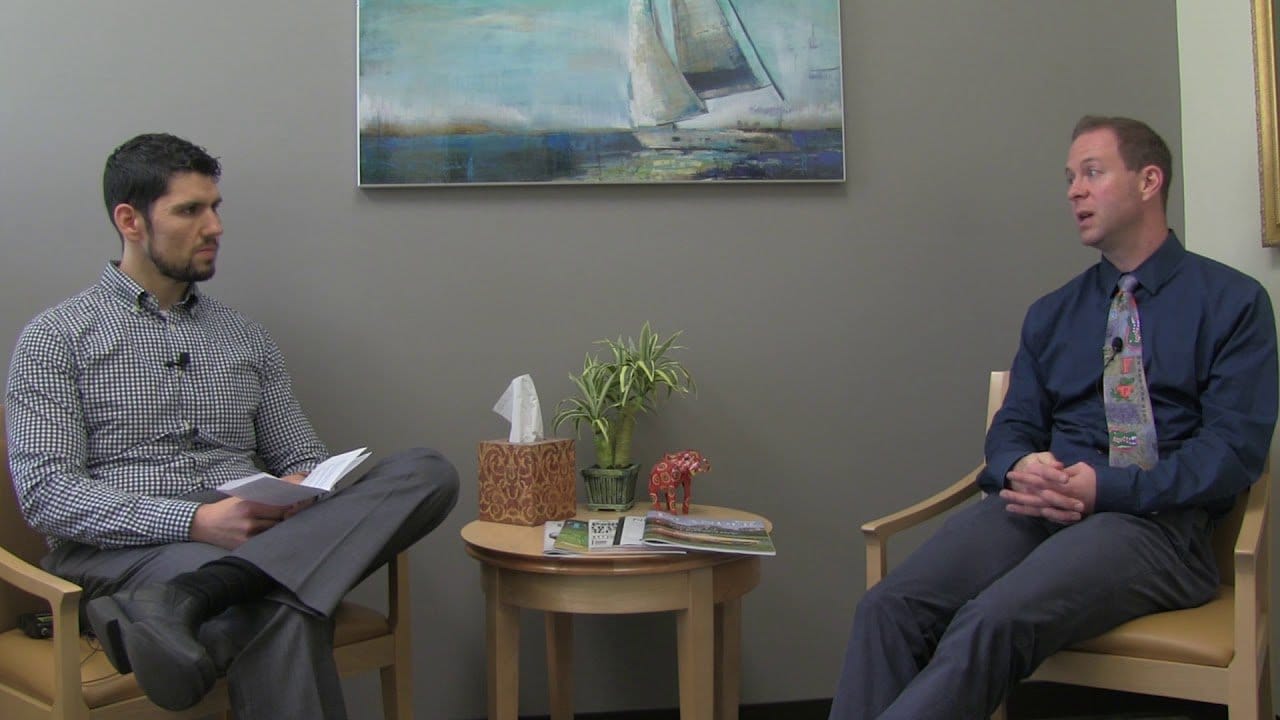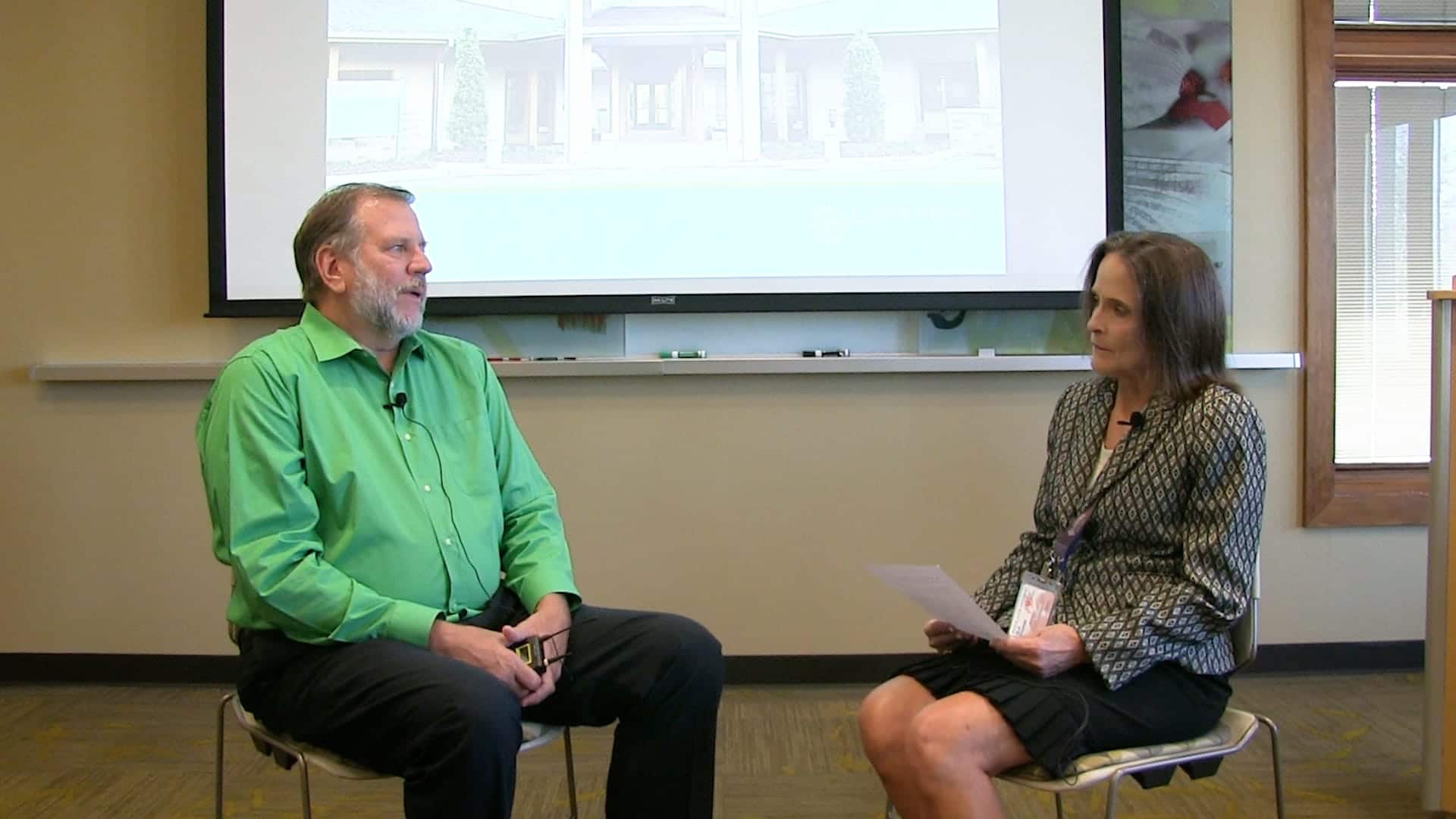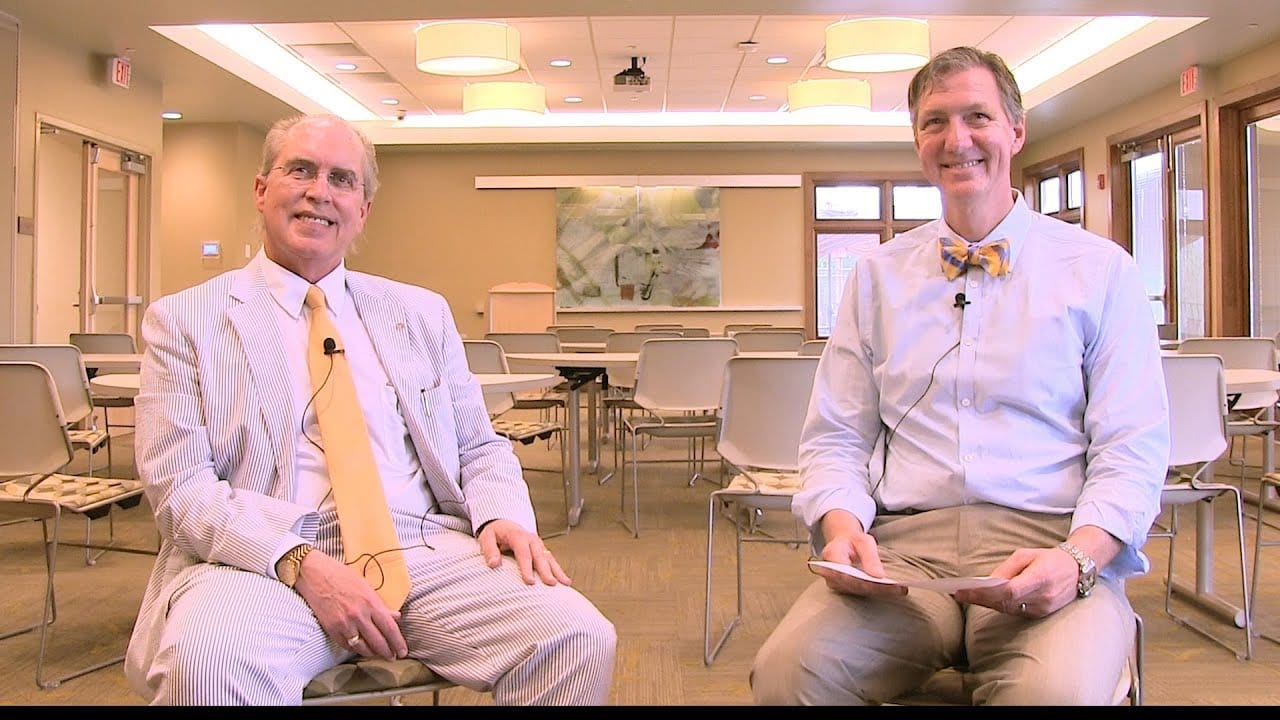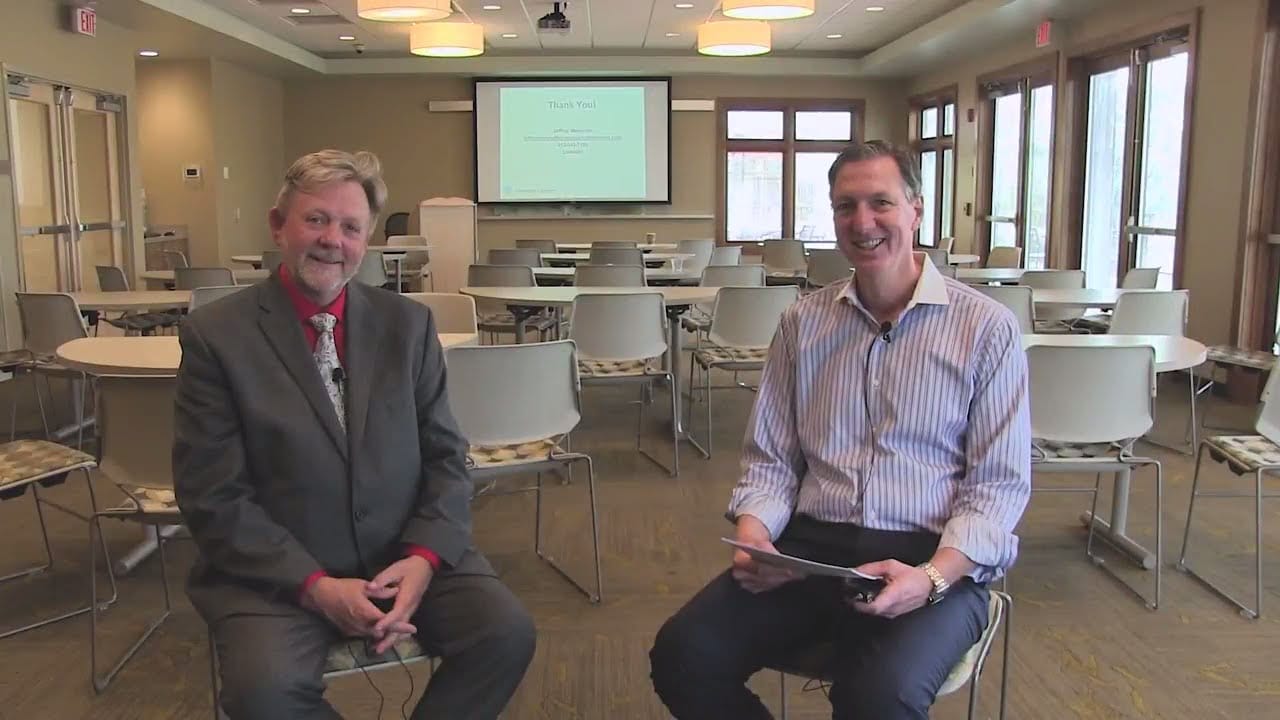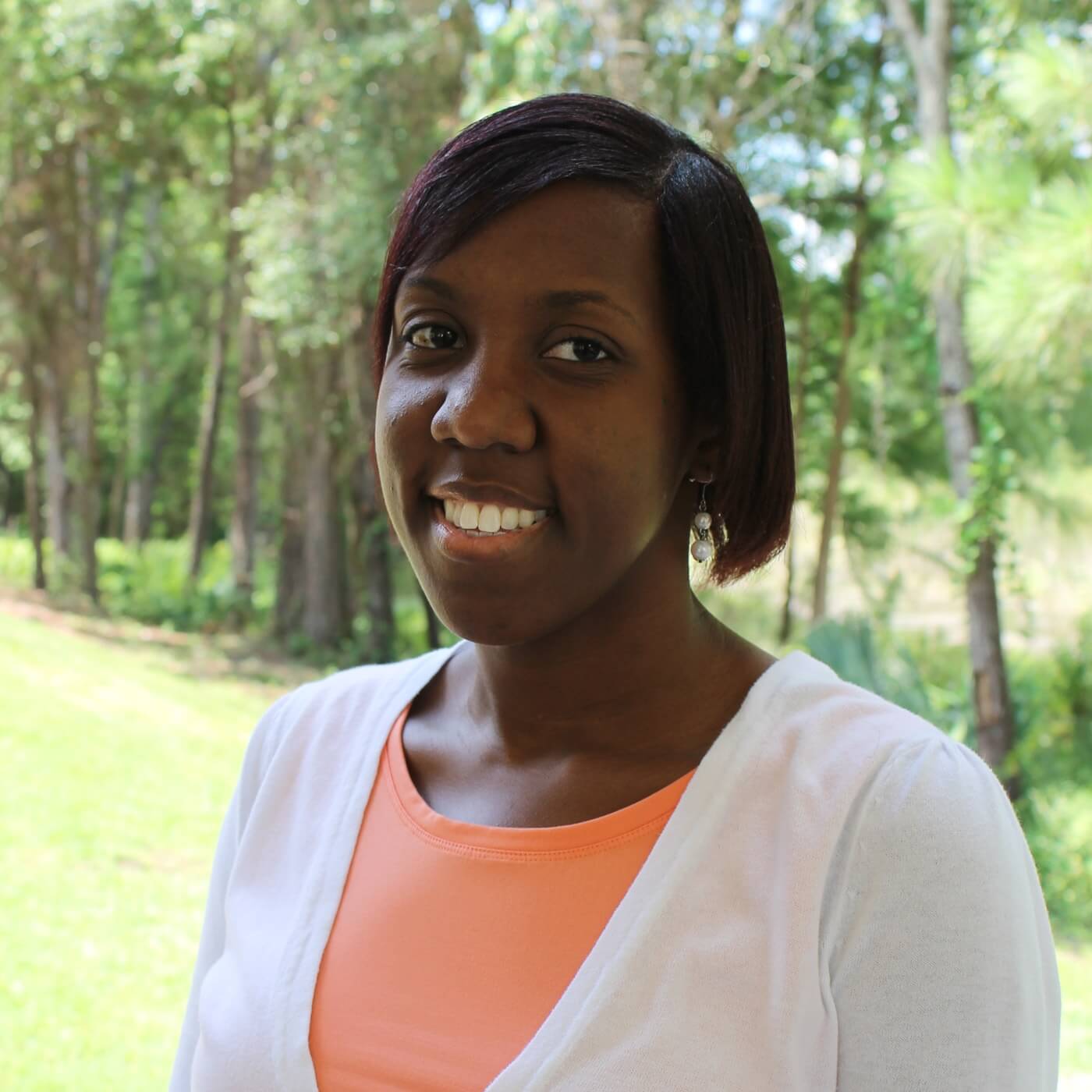

By: Lakeview Health
Learn about music therapy in this podcast-how it works and what it means to patients in addiction treatment. Brittany Harmon, Lakeview’s board-certified music therapist, describes how she uses music with patients, whether it is singing or playing songs or instruments. Music provides a filter for processing their emotions during treatment.
Podcast Transcript
Gina Thorne: Hi everyone, this is Gina, and I’m with Lakeview Health and I’m here today with Brittany Harmon in our next installment of the Lakeview podcast series. Brittany is our music therapist here at Lakeview and has been working with us for a few years now, on helping our patients deal with some of their issues around addiction through the use of music. And so we’re real excited here today to talk with you, with Brittany, and we look forward to hearing more about the field of music therapy. Gina: Welcome, Brittany. Brittany: Thank you. Gina: Can you tell us a little about your background and what got you into music therapy? Brittany: I started as a musician; I’ve been playing piano since I was six years old and just all the rest of my life been involved in music somehow. So I went to college for music and I was going to be a big opera singer but then there was a class devoted to music careers, and we had a music therapist come in one day and the light went off, and I realized I could use music as a means of helping people better their lives without me having to cut people up and deal with blood and all that yucky stuff. Gina: And so have you used music therapy in other types of areas besides working in addiction treatment? Brittany: Part of my education is we had to work in several different areas. So I worked with kids, after-school programs. I did my internship in a hospital so I got quite a few different backgrounds with them. Gina: But this is new for you, working in addiction treatment. Brittany: Yes. Gina: OK, and so how does music therapy apply to addiction treatment and recovery? Brittany: Loaded question, there are so many different ways it works a lot of times. It’s a motivator number one. It calms a lot of people in coming into rehab. Nobody puts us on their list like “Yay, I’m so excited;” it’s not Disney World. So it’s a motivator for a lot of people, helps calm them down with all the craziness going on around them. You know, I’ve seen patients and they just get so excited “Oh, its music time, I was in my room and I heard the music and I was down but I decided I was going to get up and I was going to come to your group.” So they’ve enjoyed that. And as they progress it becomes a little bit more confrontational dealing with some of their core issues through music as an expression piece but some many different ways. Gina: And so you use different music selections. So how do you decide which music you’re going to use for your group sessions? Brittany: I have an idea of different issues related to addiction. Music therapy is evidence-based. It’s looking at, “How do I use music to reach these problem areas in addiction?” And so I have an idea based on what I’ve read, but I also listen to what the patients say, because I can listen to my music all day long and I’m great, but if they can’t relate to it, then what’s the point? So I also listen to what they have. They’re like, “How do you know all this music?” Because you guys have told me. It usually a lot of the times hits home. Gina: Well, can you describe how you facilitate a music therapy group and how does it work? So for somebody who has never been in a music therapy group before, what would it look like? Brittany: So I do groups mainly, so they’ll be in with their primary, we have primary groups; usually a couple of primary groups will be combined so it’s not just one-on-one. And one of the biggest thing I try to dispel is you don’t have to be a musician, you don’t have to carry a tune in a bucket, you don’t have to have rhythm. But I encourage them to have an open mind. And so we usually start off with just a sing-along, get them going; I bring some of my shakers. People come in here and they are like, “What’s all this stuff?” so I bring the shakers and the drums and we’ll start off just have fun. Sing-along it’s not an intimidating thing. After that first song they we kind of go into other songs that music says a lot; it expresses a lot, so here are some songs I want you to listen you and you might be able to relate to what struggles, happiness, whatever the artist is going through. Gina: And so they process with you there or do they process with their therapist? Brittany: They do processing with me; sometimes I will tell their therapist if there’s a specific person that was really touched, really related or was really troubled because sometimes music does bring out some of those core issues that have been avoided for a long time. I’ll bring it to their therapist, hey this is something; cause I have like 20-something people in a group, so it’s hard to get in depth but I’ll let their therapist know, “Hey, this is something I think you might want to explore with this person.” Gina: So, you do a lot of communication with the clinical staff on what’s happening in your process groups? Brittany: Yes. Gina: That’s great. Gina: We’re all curious; I am in particular if you could provide a sample song that would be used in a group and how it may apply to their recovery work? If there’s something that’s pretty typical, a typical song that you might use, would you be willing to play something? It doesn’t have to be long. Brittany: Sure. Gina: OK. Brittany: This is a song most patients come in and they know and that’s why I go to it a lot, it’s called “Under the Bridge” by the Red Hot Chili Peppers. They’re like “YES!” and so they usually sing along with this one. So this is “Under the Bridge,” acoustic version. Brittany: (lyrics to song): Sometimes I feel Like I don’t have a partner Sometimes I feel Like my only friend Is the city I live in The city of angels Lonely as I am Together we cry Brittany: I usually ask them to drum the beat, get them active. I drive on her streets ‘Cause she’s my companion I walk through her hills ‘Cause she knows who I am She sees my good deeds And she kisses me windy I never worry Now that is a lie And I don’t ever want to feel Like I did that day Take me to the place I love Take me all the way Gina: Well that was amazing, absolutely amazing. And I can hear the lyrics as far as the way the patients would respond to that particular song. So, why that song? Why does that song do you think seem to trigger them more than any others? Brittany: It triggers them for sure. Sometimes songs do trigger because there is in this song Anthony Kiedis is a member of the Red Hot Chili Peppers. And so I talk a little bit about the Chili Peppers – they are a band that’s in recovery. Anthony Kiedis wrote this at a time in his life when he was in recovery and so we got lyrics talking about how he feels alone, isolated the only friend that he has is out on the street, the city. And a lot of patients can relate to: I pushed people away, bridges were burn, I feel like nobody understands, as well because a lot of families don’t understand what going on. And so they hear that and saying, “Hey, somebody is saying what I’ve been trying to say,” in this song and so it’s one that’s really big with them. Gina: Well, it seems incredibly appropriate and I certainly imagine that they do a lot of processing with that not with just their clinicians but with each other as peers when they come out of a process group with you like this. That’s pretty impressive. Brittany: Yeah, I hear that sometimes down the hall. Gina: They’re still talking about it. Brittany: Yeah. Gina: That’s great. Gina: Well, why do you think music therapy is such a necessary part of recovery? I mean how does it compliment it? Brittany: My goodness, there have been people that’s have come to me and have said, “Oh my gosh, that helped me for that hour, my day was like crap, I was having a horrible day and that just turned my day around.” So, definitely helping them each day, each hour, if it helps them stay sober, then that’s enough – that’s big. It’s just, that sense but then, they also they look at music and they look at it in a different way, “Oh my gosh I never really paid attention to the lyrics, I’ve heard it when I was high.” So this is a new experience and seeing that a lot of their issues come up in these songs as well; they can relate to it. Some of them have decided, you know, what I want to go back to music because they had a musical background. And so some of them as well didn’t have a music background but it was something that they always wanted to do and keeping them occupied, hey is something new, it’s something that’s really exciting for them. Gina: Do you find that some of the patients that come through the program recognize that certain music might be a trigger for them to use and that it’s kind of a road map for them to stay away from in their early recovery? Do you talk about those types of things, as well? Brittany: Yeah, some of them do, “I can’t listen to that one because I remember where I was and what was going on.” I’ve had some people, crazy, like one song might be OK for a lot of people but it will be one person, “This song reminded me of something; I can’t handle that” and they start to pick that up. Gina: You use the music therapy while they’re in treatment, so how does that carry over for them after treatment? So what is it that you guys do to help them incorporate into their lifestyle after they leave? Brittany: Definitely for those who are interested in pursuing music lessons, guitar, piano, they can definitely carry that outside of here. You know there are so many resources in the community that they can use to help them learn. I have a piano book right here. I’ve got some guitar things and they share with each other and they pick those up and some of them keep in contact and they can do that. There’s also, sometimes we use music as creative expression. Some of them write. Some of them [are] so gifted so they’ve been writing, they’ve been rapping, got a very musical group right now. So they can take that with them as a method of expression instead of bottling all that stuff up. It’s another way to get it out. Those are two of the big ways, also relaxation like stop and smell the roses sometimes because going back into the world is crazy sometimes and so they could go to music. They can use progressive muscle relaxation; they could use guided imagery, which I’ve done. We’ve paired music with that. So I told them that even if it’s just a minute they can do that. And then there are also the ones that say, “I got to stay away from this I can’t be in this early, it will take me back.” Gina: Well, it sounds like the program as a whole has been very beneficial for not just our staff but for our patients of course, who could truly benefit from utilizing this for their life after addiction and really using it as part of their recovery plan. Thank you, Brittany, for giving us the time to share with us a little bit about music therapy here at Lakeview. If you are interested in hearing more about Lakeview and the work that we do please be sure to visit us online at lakeviewhealth.multiplica.dev, you can also reach out to us at [Direct]. We’re very grateful to have the opportunity to speak with you today, Brittany. Brittany: Thank you. It was my pleasure. Gina: Hope you’ll join us for our next Lakeview podcast. Thank you.
